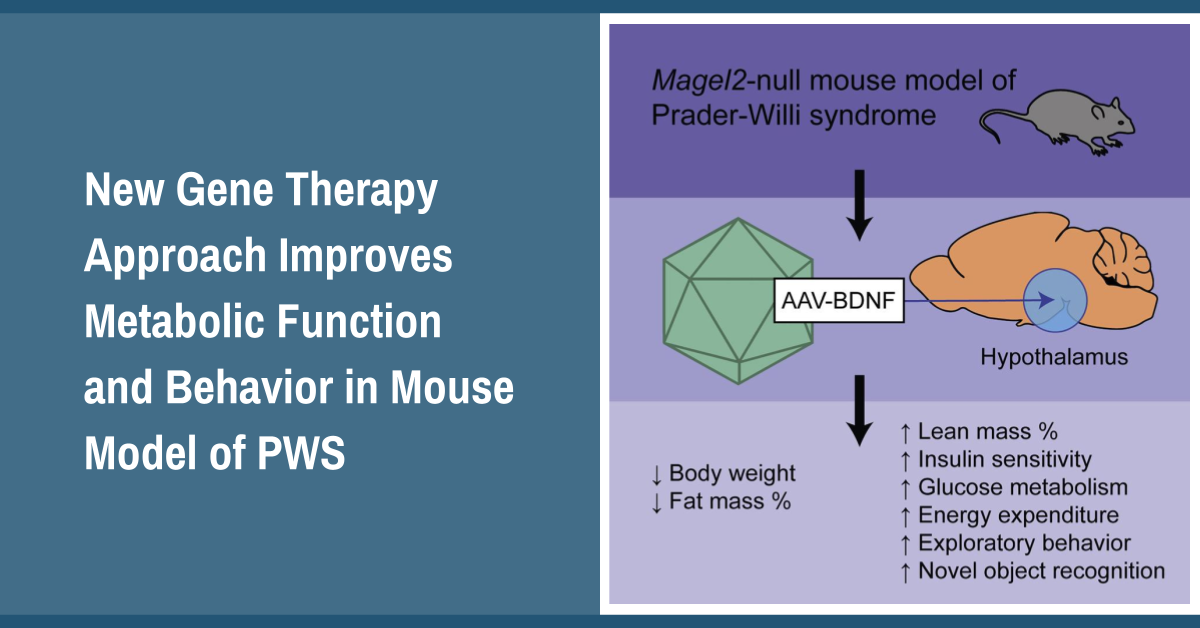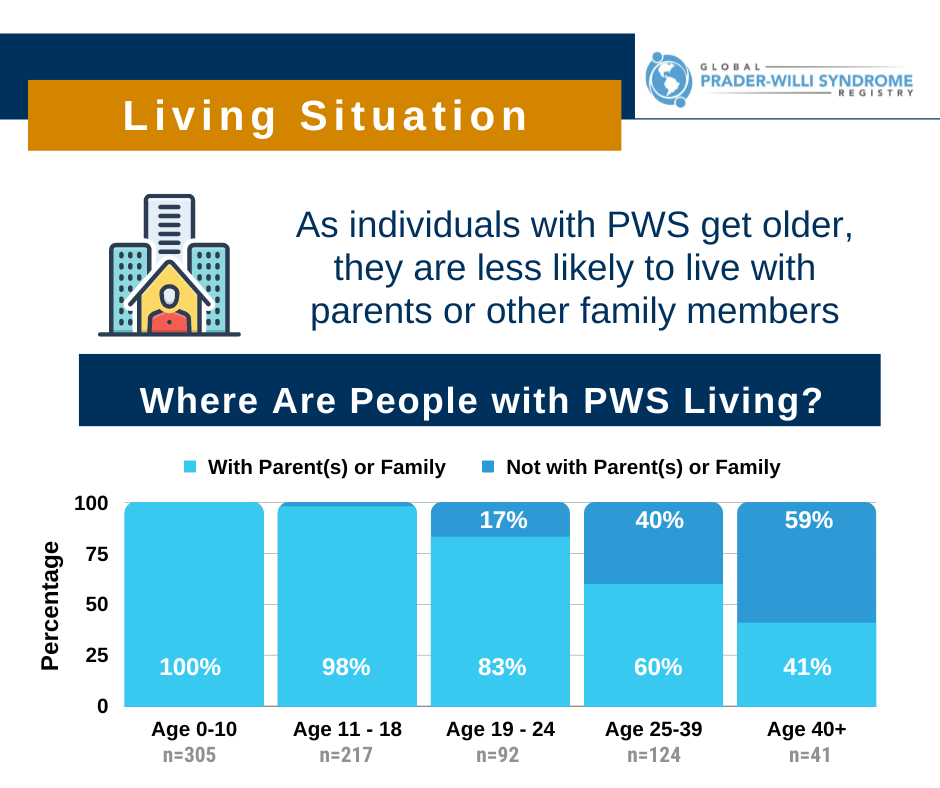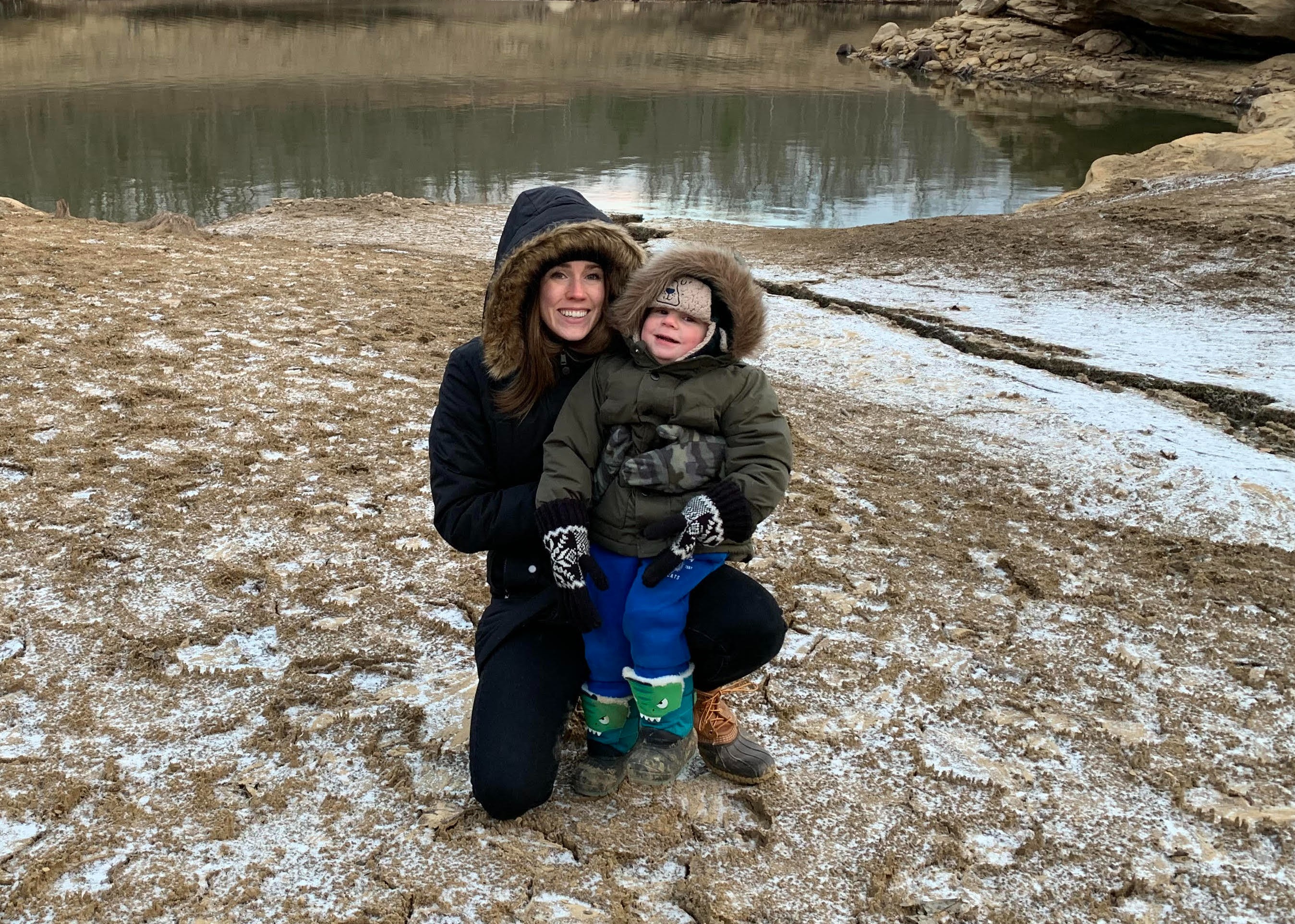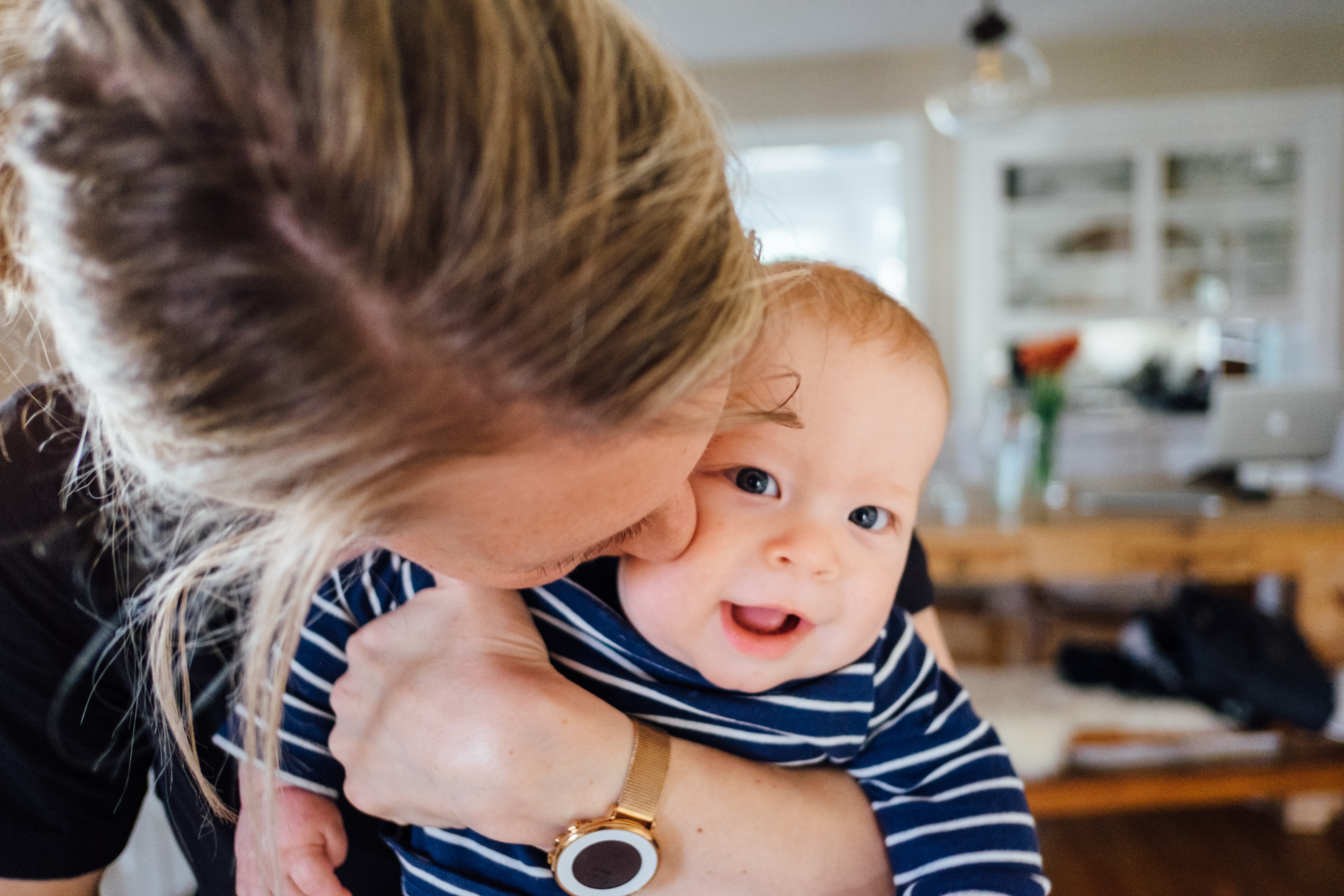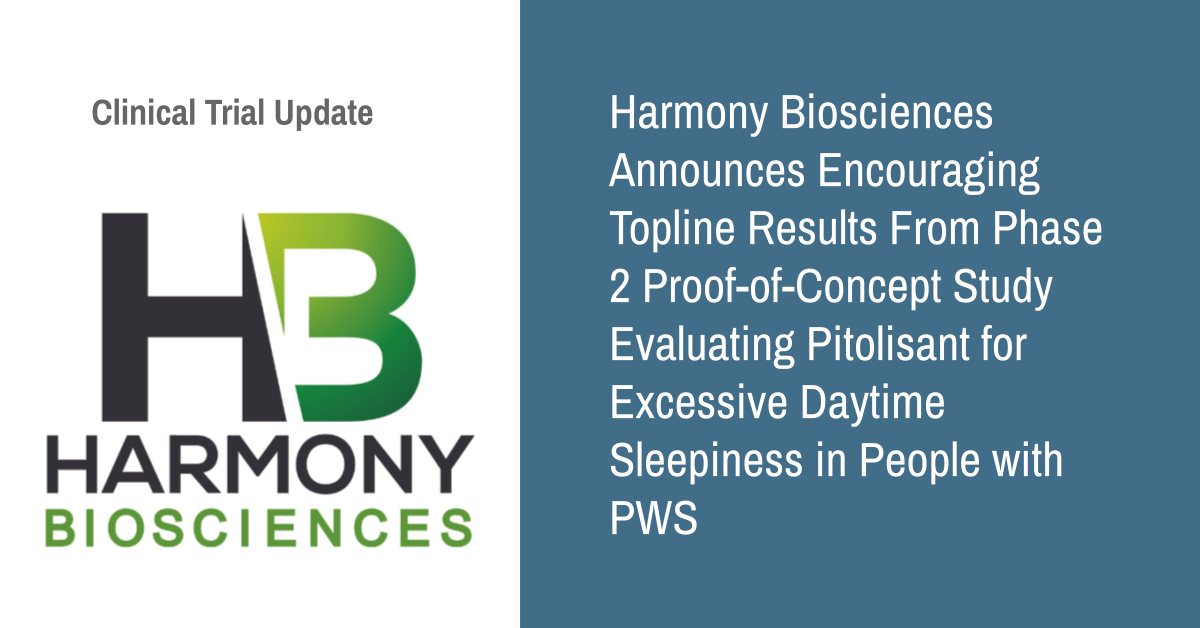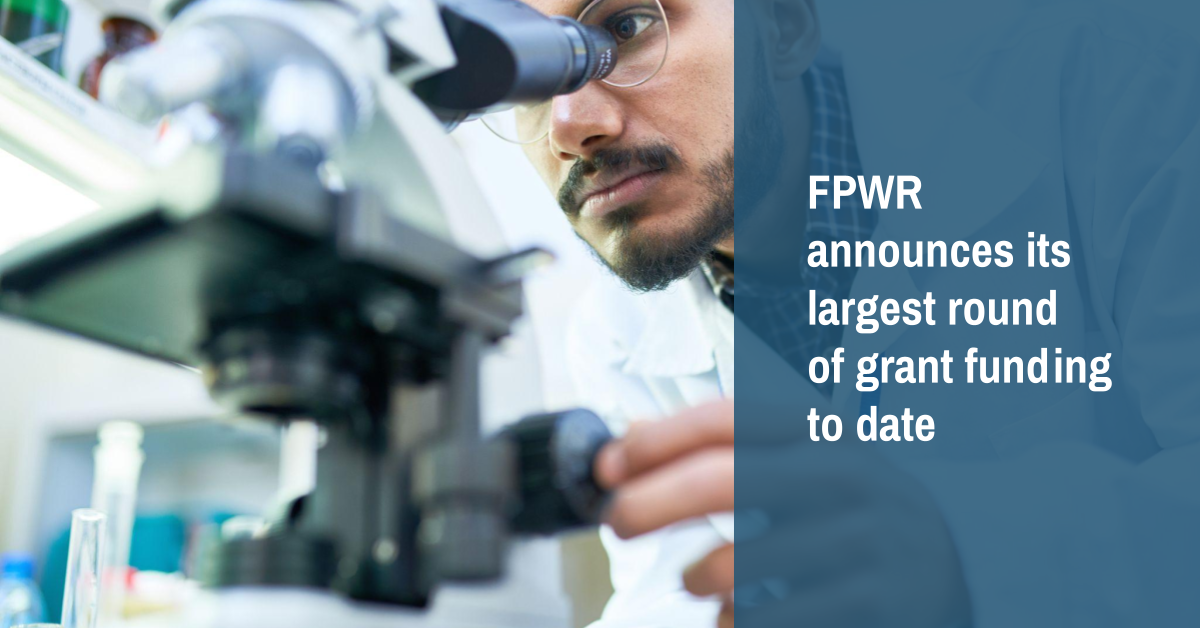Topics: Research
Lauren Schwartz-Roth, clinical psychologist and mom to a young adult with PWS, shares how to identify and treat serious mental health issues in our loved ones with PWS.
In this one-hour video, Dr. Diane Stafford, Pediatric Endocrinologist at Stanford University, discusses standards of care for patients with PWS across the age continuum, including medical needs, currently available medications, supplements, and behav...
A recently published paper explores a novel gene therapy approach for PWS, delivering a ‘growth hormone’ for brain cells, called brain-derived neurotrophic factor (BDNF). The study, Hypothalamic AAV-BDNF gene therapy improves metabolic function and b...
As individuals with PWS grow up into young adulthood and age into mid-life years, some continue to live with parents or other family, while others reside in group home or supported living situations. Here, we focus on data from the Global PWS Registr...
Hello FPWR friends! I’m Lisa Burnett and I am thrilled to share that I’ve recently joined the FPWR team. I’d love to share a little bit about myself so that you all can get to know me.
Topics: News
In this 50‑minute video, Dr. Tony Holland, Dr. Lauren Schwartz, and Dr. Deepan Singh discuss two promising studies of therapies for Prader-Willi syndrome: Vagus Nerve Stimulation (VNS) and bright light therapy. The session includes Q&A from parti...
Topics: Research
The time immediately following a diagnosis of PWS can be very difficult, and parents typically are dealing with an overwhelming amount of new information. It's important to take the time you need to process what is happening and connect with others f...
Topics: Research
Today, Harmony Biosciences announced topline data on the primary outcome, excessive daytime sleepiness, from their Phase 2 proof-of-concept trial in patients with Prader-Willi syndrome, or PWS. The study included 65 volunteers, ages 6 to 65, who were...
Topics: Research
The Foundation for Prader-Willi Research announces our second round of Research Awards in 2022, exceeding $1,800,000. Representing the largest single round of funding in FPWR history, we are excited to fund a robust group of 14 grants that encompass ...
Topics: Research






